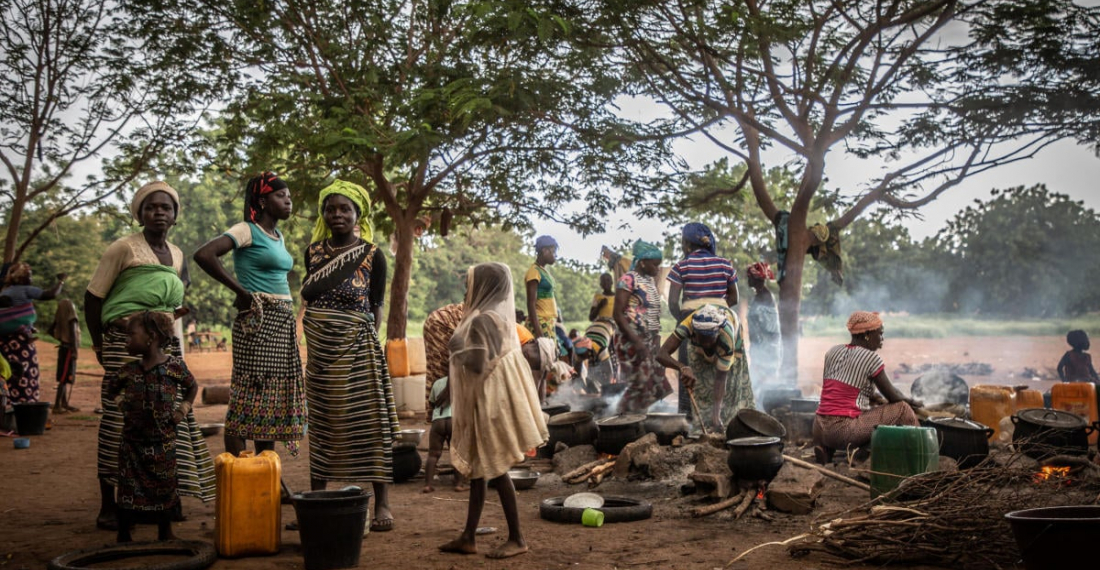Some 50 women have been abducted by suspected jihadists in northern Burkina Faso, local officials say.
Residents in Arbinda said two groups of women were taken as they were out gathering leaves and wild fruits because of a severe food shortage.
A small number managed to escape and raise the alarm.
The abductions happened on Thursday and Friday, but news has just emerged, as much of the area has been blockaded by Islamist militants.
"The women got together to go and gather leaves and wild fruits in the bush because there is nothing left to eat," one resident told the AFP news agency, adding that they had left with their carts on Thursday.
"On Thursday evening, when they didn't come back, we thought that their carts had had a problem. But three survivors came back to tell us what happened," said another resident.
Arbinda in the Sahel region has been hit hard by the jihadist insurgency.
Roads in and out have been blocked by the jihadists, there is severe hunger as food supplies are limited, and the humanitarian situation is desperate.
Last month, protesters in Arbinda broke into warehouses to get food and supplies.
Burkina Faso as a whole has been hit by a decade-long insurgency that has displaced nearly two million people.
The military seized power last January, promising an end to attacks, but the violence still rages.






